Foodwise
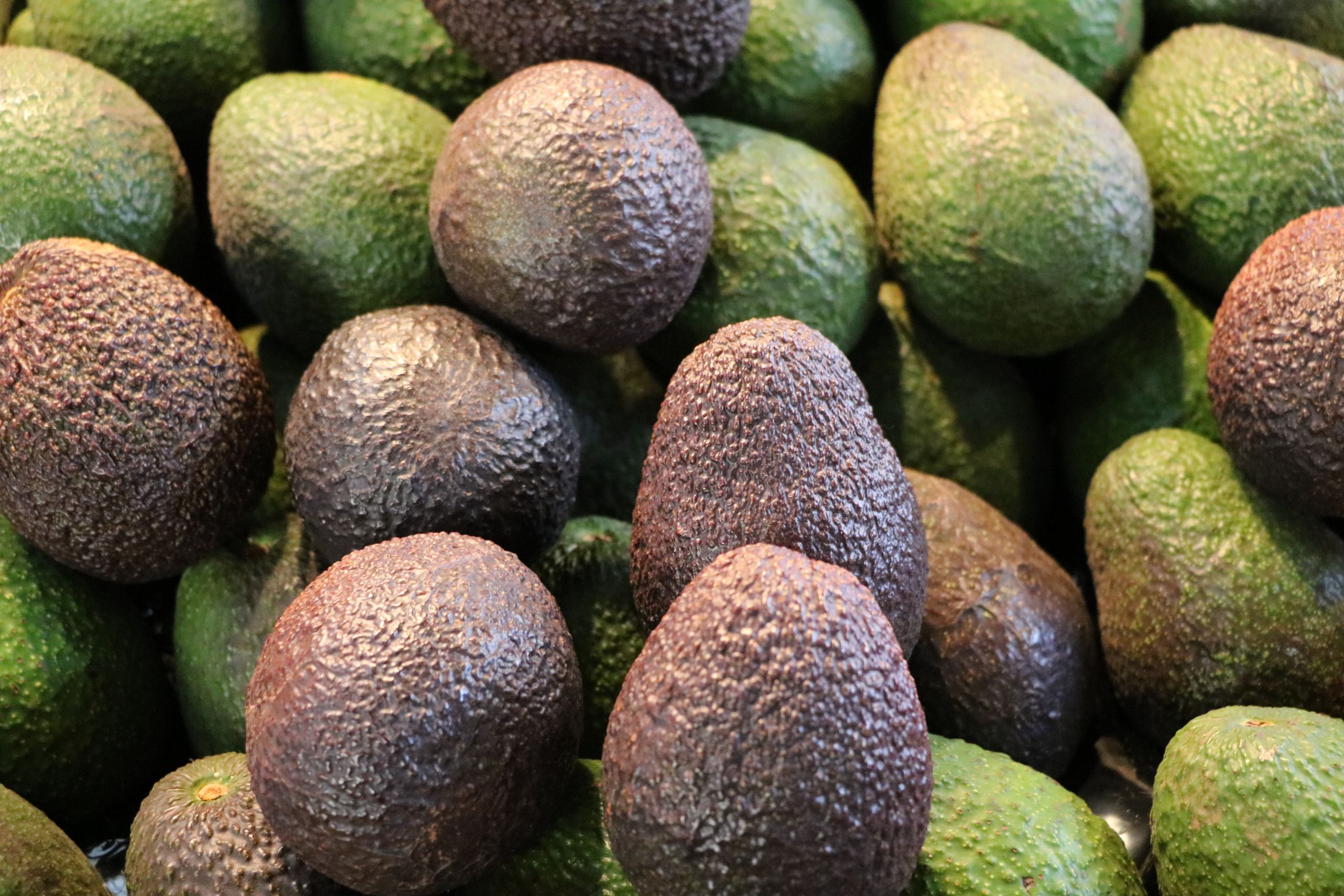
Welcome to edition #53 of Foodwise!
As Australia actively responds to coronavirus (COVID-19), the NSW Food Authority continues to work with national and international agencies to provide the most up to date information as this issue continues to evolve.
In this issue of Foodwise, we have included some information and a number of resources to assist business and industry navigate the ongoing challenges and impacts of COVID-19.
During these unprecedented times, we continue to work to ensure food produced, manufactured and sold in NSW is monitored and safe at each step and have reviewed our Business Continuity Plans to ensure the agency remains operational should the COVID-19 situation change.
We hope you enjoy this edition of Foodwise. As always, we welcome your comments and feedback, so please feel free to drop us a line with any additional suggestions.
For more information visit the NSW Food Authority website, email food.contact@dpi.nsw.gov.au or call the Helpline on 1300 552 406.
COVID-19
There is no evidence to date to suggest that food is a source or route of transmission of the virus that causes COVID-19. As is the case for many businesses, the public health measures put in place to protect us are impacting many food producers and businesses.
Maintaining confidence and oversight in the high level of food safety in the food supply continues to be a significant priority for the Australian food regulators and the Australian food regulation system. We are continuing to engage closely with industry to identify and address COVID-19 impacts on food businesses.
Reducing the impacts of COVID-19 on food businesses
The NSW government is working with national and international agencies to provide the most up to date information as this issue continues to evolve. There is much more to learn about COVID-19, its severity, and other features associated with the virus. Epidemiological and clinical investigations are ongoing.
As a precautionary measure, we have reviewed our Business Continuity Plans to ensure the agency remains operational should the COVID-19 situation change. To minimise the impact of COVID-19 on your business, all food businesses are encouraged to do the same.
The Food Authority website contains important information about COVID-19 for food businesses in NSW. Information is also available on the Food Standards Australia New Zealand website.
Demand on food producers and businesses
The impact of COVID-19 on the food service, cafe, hospitality and restaurant sectors, has meant that many of these businesses are closed or are experiencing an unprecedented decline in demand.
In response to the economic impacts of COVID-19, many food businesses are now looking at ways to adapt their business models, providing services they have never offered before including delivery or take-away options.
In order to support these businesses, the NSW Food Authority has provided advice to businesses preparing food and meals to be delivered to those at home, in self isolation, or working on the frontline. For changes to planning rules, visit https://www.foodauthority.nsw.gov.au/help/covid-19-advice-for-businesses.
For some food producers, the current decrease in demand from the hospitality sector has resulted in a corresponding increase in density on farms. As a result, some producers may be forced to reduce production. The drop in demand from the hospitality sector may also see markets temporarily disappear for products including Wagyu, pork belly and premium seafood, with some high end producers potentially having to exit the food industry altogether. Once restrictions are lifted and previous demand levels return, we could see a shortage of specialised products.
To address these issues and other associated COVID-19 impacts on food producers and industry, the NSW DPI has initiated a number of Industry Working Groups. The aim of these groups is to support industry, specifically how we can work with and assist industry and lead recovery. For more information regarding DPI’s response to COVID-19, visit https://www.dpi.nsw.gov.au/home/covid-19
Access to ingredients and mindful of allergens
In the wake of COVID-19, some manufacturers anticipate difficulty accessing ingredients and might have to substitute and stretch ingredients in order to ensure their production can continue despite adverse effects of supply chain disruptions. Unfortunately, it can be challenging to ensure retailers are notified of these changes.
Where possible, Australian retailers and manufacturers should be reviewing their suppliers and identifying local suppliers and/or assessing opportunities to reformulate where specific inputs or ingredients can no longer be sourced.
In light of this, food businesses in NSW are reminded to keep up allergen management and ensure the composition of any substituted ingredients is understood and declared, particularly allergens. Businesses should also be aware that substitutions can cause a change in formulation that may affect a product’s inherent safety and stability.
Regulatory colleagues in other countries have observed an increase in food recalls as reformulation and ingredient substitutions have resulted in some products containing undeclared allergens. These risks increase where growing demand creates throughput pressures and where new or inexperienced staff do not properly understand these risks or do not follow the processes required to address them.
In NSW as the situation unfolds, regular remote follow up & support is becoming increasingly necessary, as sites and auditors adhere to COVID-19 social distancing requirements. The NSW Food Authority continues to work on remote auditing processes for food businesses, with a focus on high priority suppliers. For more information regarding food safety inspections and auditing procedures during COVID-19, visit https://www.foodauthority.nsw.gov.au/help/covid-19-advice-for-businesses.
Key advice for manufacturers
Currently there is no evidence of foodborne transmission being a significant pathway for COVID-19. Food Standards Australia New Zealand (FSANZ) provides further information.
There are no direct food safety measures as a result of the novel coronavirus pandemic. Like SARS and MERS, COVID-19 is spread via person-to-person transmission (coughing, contaminated surfaces and fomites, and close contact with an infected individual). More information for businesses can be found on the NSW Health website.
The best way to prevent the spread of COVID-19 and protect your business is by ensuring that stringent hygiene practices are maintained. At a minimum, businesses should adhere to existing requirements of food laws, specifically frequent hand washing before and after any food preparation.
Businesses should consider if there are any higher risk activities that need to be managed and where applicable, implement appropriate risk management strategies. For example, businesses that require face-to-face contact with customers should encourage social distancing and have hand sanitiser available for use.
For more information regarding the food safety aspects associated with COVID-19, and measures that businesses can take to protect their workforce, visit https://www.foodauthority.nsw.gov.au/help/covid-19-advice-for-businesses
Information for food businesses sourcing personal protective equipment (PPE) or needing to discuss Workplace Health and Safety
A shortage of personal protective equipment (PPE) is creating concerns globally as many industries and countries navigate the impact of the spread of COVID-19.
NSW Procurement has recently published a list of suppliers who have registered an interest or ability to supply to the government. While this is part of the government's central purchasing, the information is publicly accessible on the buy.nsw website.
This website is a good first point of call for any food or hospitality industry stakeholders struggling to source PPE through their usual channels.
All supplier information has been directly provided by suppliers, without any verification or capability assessments undertaken by NSW Procurement.
When engaging suppliers, please ensure you undertake your own due diligence in line with your organisation’s procurement guidelines. You can also visit the Industry Capability Network.
SafeWork NSW can provide advice on workplace health and safety and COVID-19 information available on their website.
DPI COVID-19 Industry Liaison Working Group initiative
As part of the NSW Government's response to assist with the challenges resulting from COVID-19, the NSW Department of Primary Industries (NSW DPI) has established an industry liaison working group initiative which aims to capture and resolve COVID-19 issues relevant across industry groups.
NSW DPI has established 10 industry working groups, including the food industry and supply chain and trade industry. These groups include DPI technical staff, key industry organisations and members of the NSW COVID-19 response unit. They will meet over the coming weeks to provide the opportunity for industry to voice any issues and concerns directly.
For more information on DPI’s response to COVID-19, visit https://www.dpi.nsw.gov.au/home/covid-19.
Financial assistance for business and employers
To help businesses and employees manage the significant economic impacts of COVID-19, the NSW Government has various financial relief and support packages available to keep businesses running and employees in work. For more information, visit https://www.nsw.gov.au/covid-19/businesses-and-employment
More information
Please call the NSW Food Authority Helpline on 1300 552 406 or email: food.contact@dpi.nsw.gov.au
Bushfire Industry Recovery Package - supporting recovery and resilience
The NSW Government’s $140 million Bushfire Industry Recovery Package is providing funding to support the short-term recovery and resilience of the forestry, horticulture, aquaculture and agriculture industries in NSW impacted by the bushfires from 31 August 2019.
The Supply Chain Support Grants are one of two funding streams in the Bushfire Industry Recovery Package helping bushfire-affected producers and businesses in targeted industries meet their short-term recovery needs.
Grants are available for the following industries:
- Apiculture
- Aquaculture
- Dairy
- Forestry
- Horticulture
- Viticulture
These industries are the heart of regional economies and the Supply Chain Support Grants will go towards projects to help them rebuild and recover in the immediate to short term, underpinning job security and enabling future production.
Applications for the Supply Chain Support Grants are open from 19th May 2020 to 12th June 2020.
For more information visit www.raa.nsw.gov.au/supplychaingrants or contact the NSW Rural Assistance Authority via rural.assist@raa.nsw.gov.au or call 1300 678 593.
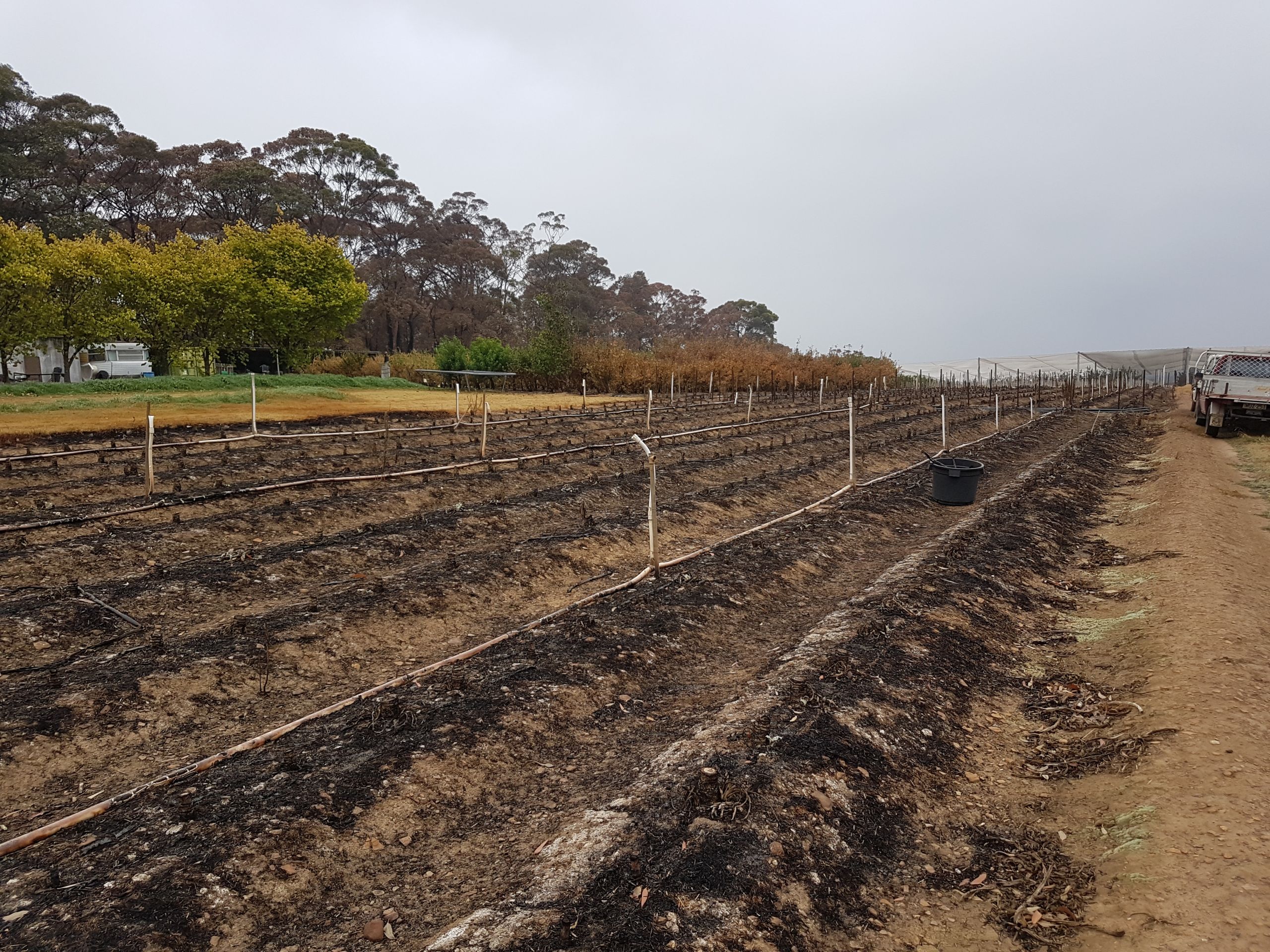

Cheese champions at the Sydney Royal Cheese & Dairy Produce Show
Sponsored by the NSW Food Authority, the Sydney Royal Cheese & Dairy Produce Show celebrates talented food producers in NSW and promotes excellence and innovation in the food industry.

Berrys Creek Gourmet for Champion Speciality Cheese – Barry Charlton & Cheryl Hulls
Berrys Creek Gourmet for Champion Speciality Cheese – Barry Charlton & Cheryl Hulls
At the Cheese & Dairy Awards Night held in February, NSW Food Authority CEO, Dr Lisa Szabo was proud to present the Food Authority Perpetual Trophy for Champion Cheddar Cheese to NSW dairy producer Bega Cheese for their Vintage Cheddar, and the Champion Speciality Cheese to Berrys Creek Gourmet for their Bellingham Blue.

Bega Cheese for Champion Cheddar – Phil Tatzenko
Bega Cheese for Champion Cheddar – Phil Tatzenko
It was great to see such a strong contingent of NSW producers on the winners roll - a testament to the quality of the dairy industry in this state and the high standard of our produce.

African Swine Fever biosecurity update
African swine fever (ASF) is a contagious viral disease of domestic and feral pigs. The disease has established itself in Asia and parts of Europe, and most recently was detected in Papua New Guinea which has further heightened the risk of the exotic disease impacting Australia’s pork industry.
ASF has no vaccine and in its most severe form, can kill 100 per cent of all infected pigs.
While ASF is not a danger to human health or food safety, the management of food waste
plays a vital role in protecting our pigs. Feeding, or allowing either domestic or feral pigs access to meat or meat products, or food that contains meat or that has been in contact with meat (known as ‘swill’), has been directly linked to outbreaks of ASF, foot-and-mouth disease (FMD) and other devastating livestock diseases overseas.

Businesses that prepare and/or sell food have a responsibility to dispose of food waste appropriately. It is illegal to provide a person with, or access to prohibited food waste to
feed pigs or ruminants. Prohibited food waste should be placed in a garbage bin for collection by your local council or commercial waste service for disposal in landfill or composting at a recycling facility. Food scraps and waste should be disposed of in a secure bin to ensure that pigs can't access and eat it.
We must continue to be vigilant about the threat of ASF, particularly in the context of COVID-19 which is significantly impacting the food and hospitality sectors. The early detection and reporting of ASF is critical to stopping the spread of this disease.
ASF messaging continues to emphasise the following:
- Dispose of all food waste responsibly
- ASF is not harmful nor can it be transmitted to humans through contact with pigs or consumption of pork. ASF is, however, deadly for pigs
- ASF should not be confused with Swine flu or COVID-19
- If you are aware of swill feeding or food waste not being disposed of responsibly (and fed to livestock), please report it to the NSW Department of Primary Industries Biosecurity Helpline on 1800 680 244
- Report any unusual signs of disease or death in pigs immediately to the Emergency Animal Disease Watch Hotline on 1800 675 888.
More information about ASF is available by visiting the NSW Department of Primary Industries website.
2020 International Year of Plant Health
2020 is the International Year of Plant Health (IYPH2020). Declared and led globally by the United Nations, the year provides a once in a lifetime opportunity for participants around the world to raise awareness on how protecting plant health can protect the environment, help end hunger, reduce poverty and boost economic development. Australia will be making the most of the International Year of Plant Health in 2020 by promoting how much Australians value plants, and how we can best protect them. The theme of the year is ‘Protecting Plants, Protecting Life’ because plants impact our lives every day. For more information, including ways you can become involved, visit https://planthealthyear.org.au/
RETAIL
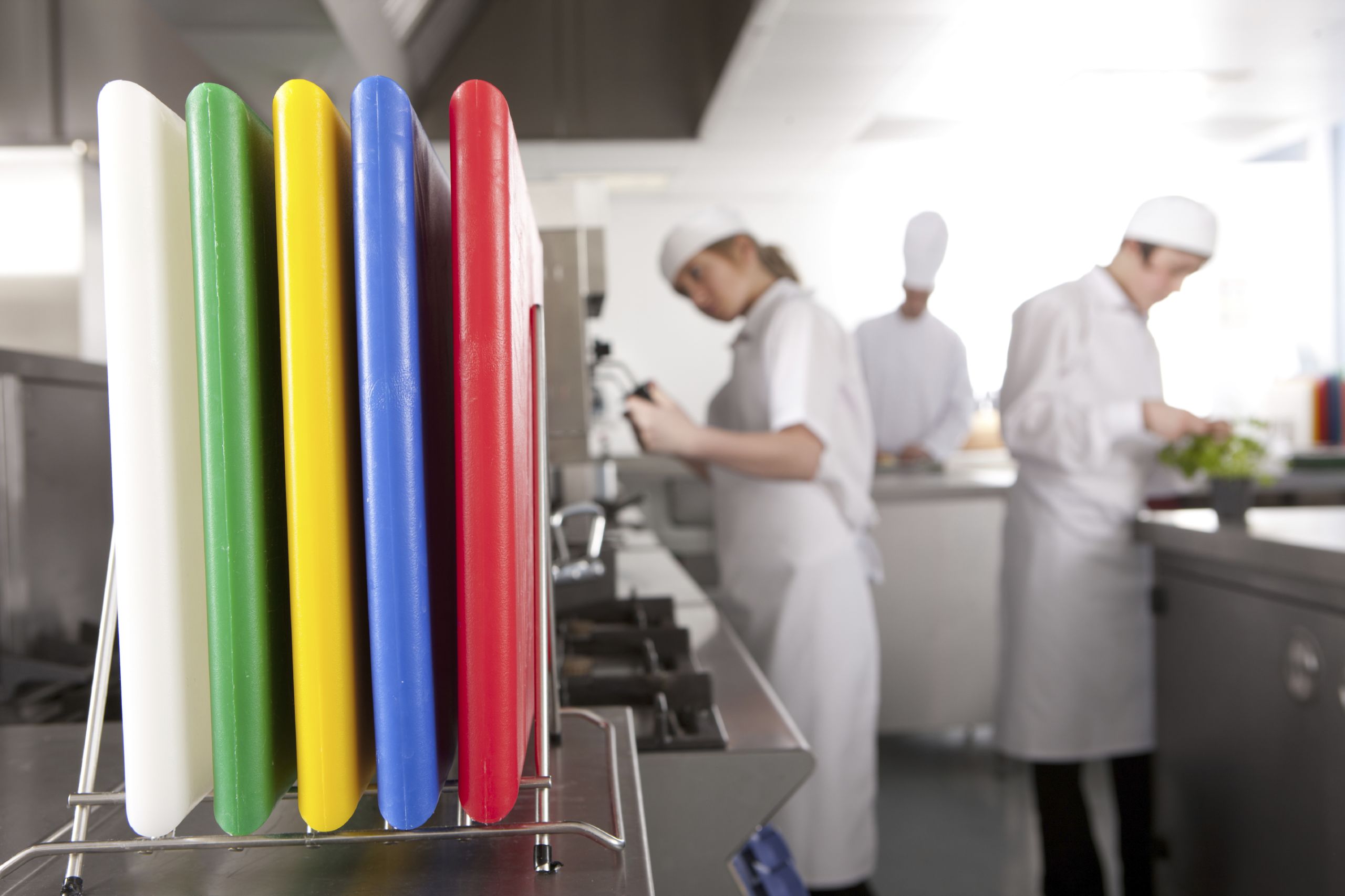
Commercial refrigerators rebate for small business
Did you know the typical convenience store spends on average 55% of its power bill on refrigeration?
Commercial refrigerators are energy intensive as they operate 24 hours a day, 7 days a week.
The NSW Government is providing small businesses with rebates on energy efficient commercial refrigerators. The rebate, along with the new equipment, could help small businesses lower their energy bill and reduce operating costs.
What is the offer?
Get a rebate on a range of new, energy efficient commercial refrigerators and freezers.
What can I save?
As an example, you can:
- get a rebate of around $500 for an eligible, two-door vertical display refrigerator, and
- save around $350 a year on your energy bill compared to using a standard fridge.
How does it work?
- Find an eligible product on the website
- Select an eligible product for purchase or lease from our list
- Fill out the easy online rebate application form and attach evidence of your purchase or lease
- Once approved the rebate will be paid directly into your nominated bank account.
Small businesses can claim the rebate on up to five commercial refrigerators purchased or leased between 9 September 2019 and 30 September 2021.
For more information, visit https://energysaver.nsw.gov.au/business/discounts-and-incentives/commercial-refrigerator-rebates
Food surveillance activity summary report 2018-2019
NSW continues to enjoy a strong food surveillance partnership model, the Food Regulation Partnership (FRP), aimed at ensuring that consumers have safe food and the NSW food industry continues to thrive.
The NSW Food Authority (Food Authority) appoints all NSW councils and Office of Environment and Heritage (OEH, in respect of Kosciusko National Park) as enforcement agencies under the Food Act 2003 (NSW).
They work together to ensure NSW retail food service businesses comply with food safety standards and regulations.
Under the Food Regulation Partnership all enforcement agencies are required to annually report on their food regulatory activities.
The purpose of the activity report is for the Food Authority to capture data collected by these agencies from across the state into a central document to monitor and assess trends in food surveillance work.
In tracking the food safety surveillance activity of local councils, the Food Authority can identify trends and plan strategies and activities to better improve food safety work and protect the health of NSW consumers.
The Food Authority prepares a Summary Report on the food surveillance activities data submitted by all enforcement agencies.
To view the full summary report of NSW enforcement agency activities in the retail food service sector for the period 1 July 2018 to 30 June 2019, click here.
MEAT
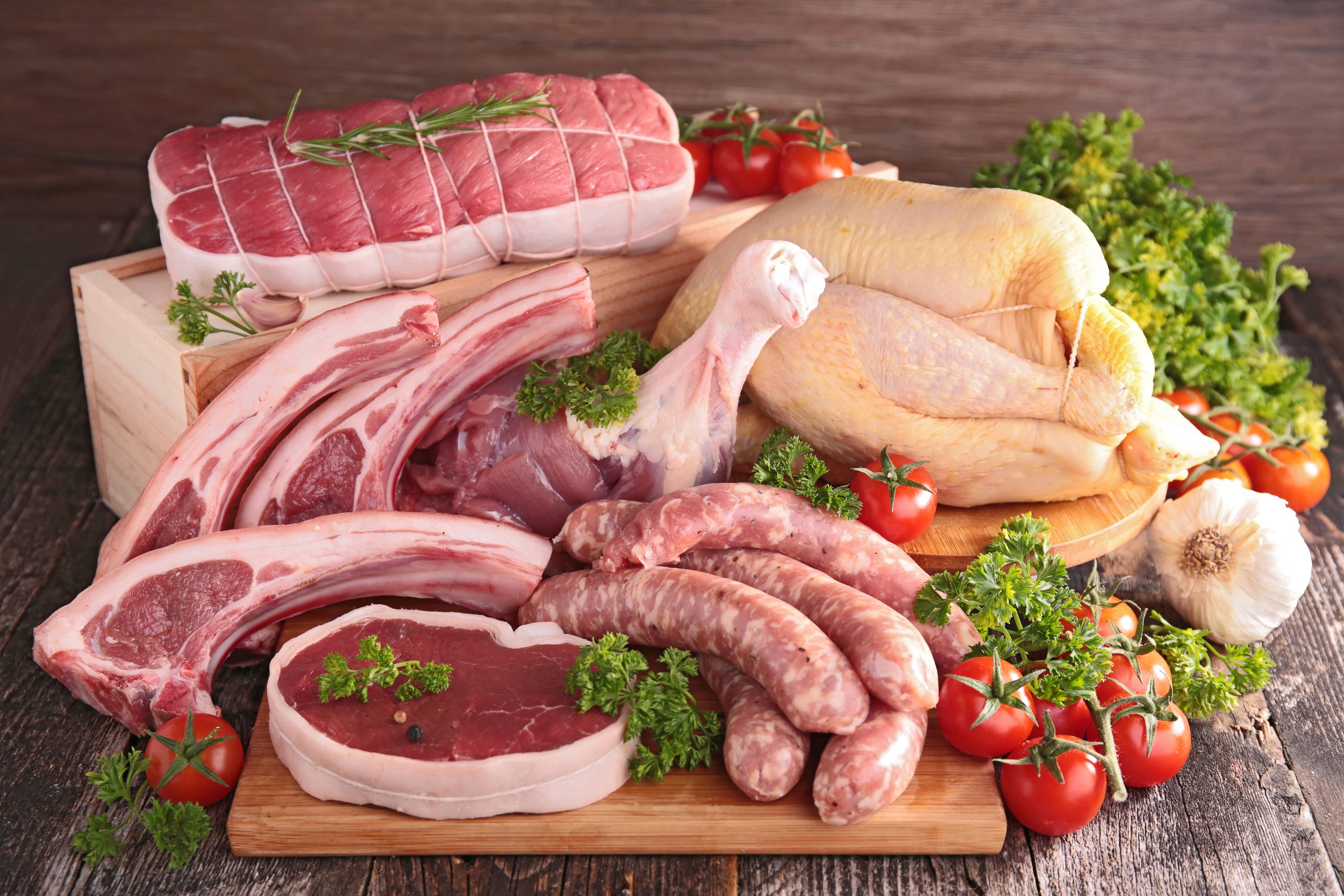
Inspections and audits
From January 2020 to March 2020, the NSW Food Authority conducted 239 inspections and 398 audits of licensed meat businesses. This industry sector has recorded a compliance rate of 93%.
The below table shows yearly comparable data for compliance and audit activity in the meat sector between the same reporting periods in 2019 and 2020.
| Reporting period | Jan-Mar 2019 | Jan-Mar 2020 |
|---|---|---|
| Total audits | 492 | 398 |
| Total inspections | 202 | 239 |
| Compliance rate | 95% | 93% |
Meat Industry Consultative Council
The last MICC meeting was held in Sydney on 11 March 2020
The main topics for discussion at the latest Meat Industry Consultative Council (MICC) held in Sydney on Wednesday 11 March 2020, were
Salmonella Enteritidis update
Council members were updated on the current status of Salmonella Enteritidis (SE) in NSW and the ongoing efforts DPI is making to control the outbreak and to identify potential sources. The council was advised that human SE cases continue to be tracked and any infected flocks quarantined. The number of SE cases is low compared with the previous year and control efforts are largely succeeding. NSW DPI is currently checking the status of poultry businesses against the NSW Biosecurity Control Order, with the majority complying. Members were also advised that Food Standards Australia New Zealand is currently reviewing the national egg standards legislation.
National implementation of Poultry Process Hygiene criteria
Members were provided with an update regarding the existing Poultry Process Hygiene criteria and its use by regulators. There has been some initial discussion around the use of data generated by industry to develop a national performance metric for poultry meat, which could be a tool to inform the National Foodborne Illnesses Reduction Strategy. This would have to be designed in a way which did not identify specific processing plants or jurisdictions and would need to be developed in partnership with industry. A similar model exists in the red meat industry. Further discussions are required on the issue of the ownership of the poultry processing monitoring results and the permission required for alternative use. Members noted that NSW will be expanding Poultry Process Hygiene criteria to small operators as well and recognised that these will need a slightly different monitoring regime in comparison to larger poultry producers.
African Swine Fever
Members were updated on the current initiatives being undertaken to communicate the work that is being done around African swine fever (ASF) preparedness and prevention in NSW. Recent examples include communication with environmental health officers about the responsible disposal of food waste and swill feeding, as well as awareness articles in publications including Food Australia magazine. The importance of ensuring ASF is not confused with Swine flu and COVID-19 was emphasised to the Committee. Members were informed that Animal Heath Australia has published a 'spot the difference' fact sheet to help distinguish African swine fever from Swine flu. Members were also advised that a national vet guide specific to ASF will be published shortly and distributed via the Chief Veterinary Officer. Maintaining messaging about ASF in the context of COVID-19 is an ongoing challenge. Communications to some stakeholders will need to be revised to suit the current situation, including the approach that universities take to distribute ASF messaging to their international students. Members noted that DPI is working closely with the National Biosecurity Communications and Engagement Network which includes other jurisdictions to ensure that the process for recording and response is streamlined or as streamlined as possible.
Biosecurity update
Members were provided with an update regarding a survey that is currently open to the pig industry, recognising that many pig producers in NSW are not affiliated with either Australian Pork Limited or through their QA program, the Pig Pass Program. The purpose of the survey is to capture and understand what is important to these producers when thinking about protecting their pigs from pests and disease. Members were advised that another DPI survey will go out next financial year to the broader NSW primary production industry to gain an understanding of the existing biosecurity plans in the different industries.
View a full summary of meeting outcomes.
The next meeting of the MICC will be held on Wednesday 22 July 2020.
The Meat Industry Consultative Council is attended by representatives from the Australian Meat Industry Council, Australian Pork Limited, Australian Chicken Meat Federation, NSW Farmers’ Association, Australian Meat Industry Council, meat businesses and NSW DPI.
SEAFOOD
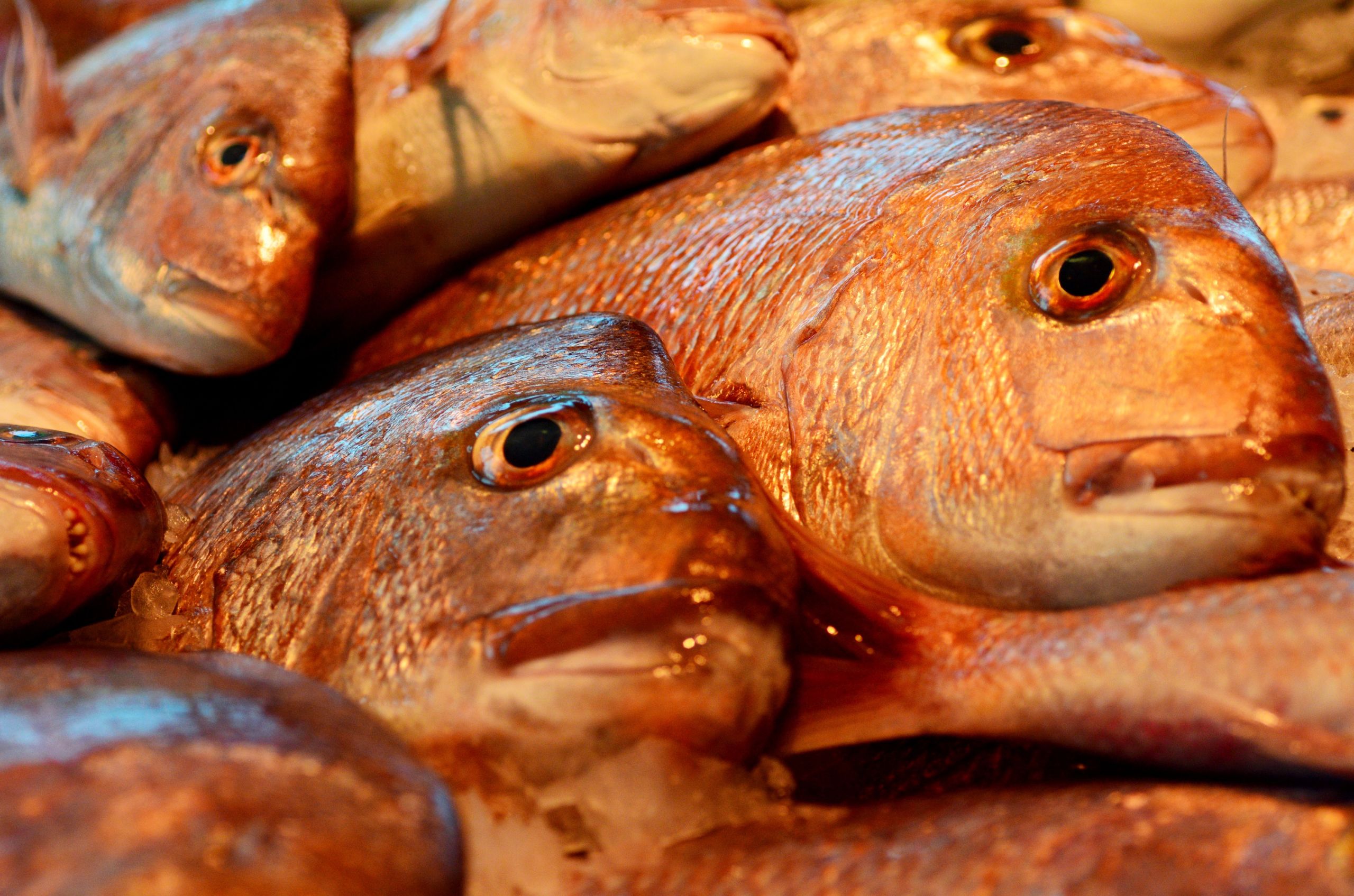
Inspections and audits
From January 2020 to March 2020, the Food Authority conducted 58 inspections and 76 audits of licensed seafood businesses.
The table below shows yearly comparable data for compliance and audit activity in the seafood sector between the same reporting periods in 2019 and 2020.
| Reporting period | Jan-Mar 2019 | Jan-Mar 2020 |
|---|---|---|
| Total audits | 68 | 76 |
| Total inspections | 107 | 58 |
| Compliance rate | 95% | 95% |
NSW Shellfish Committee
Topics discussed at the latest NSW Shellfish Committee, held in Sydney on Wednesday 26 February 2020, included:
Industry updates
Members provided updates on key and emerging issues in their respective industry sectors. Issues raised included:
Review of Floating Basket and Raft Best Practice Guidelines
With the evolving technology and rapid adoption of floating basket culture and modifications to raft culture occurring across industry, a review of the existing best practice guidelines for floating basket and raft culture is required. Recent lobbying by a community group against floating basket culture further supports a need to ensure best practice guidelines are current with new technology. Industry contacts have been nominated to work with the DPI Aquaculture team to update the raft guidelines and assist in updating the floating basket guidelines.
OISAS Review
Following the reasons for the review of the floating basket and raft best practice guidelines, a review of the NSW Oyster Industry Sustainable Aquaculture Strategy (OISAS) is required. This provides an excellent opportunity to revise a key document for the oyster industry which was last updated in 2016. DPI will host some estuary information meetings later in the year.
Spat Farmers
Under the NSW Food Regulation 2015, if a business pays the full local levy in one estuary and catches spat in another estuary they are eligible for a 50% reduction in the second estuary. An industry proposal to remove this reduction was discussed at the meeting. The NSW Food Authority advised that Food Regulation 2015 is due to be repealed and remade in consultation with industry. Issues like this are best considered as part of that process.
Any industry members or local shellfish programs wishing to provide feedback on this issue should send their correspondence to: NSW Shellfish Committee PO Box 232 Taree NSW 2430 Email: food.nswsp@dpi.nsw.gov.au
Bushfire and Flooding Impacts
The devastating impacts from the recent bushfires and flooding has been felt significantly by the shellfish industry. While the full impacts of these disasters may take time to be fully known, any farmers with stock losses (mortalities) and facility or building impacts are encouraged to advise DPI. Other matters such as estuary opening management plans, access to water quality data and extension of grants were also raised. OceanWatch coordinated two oyster assistance meetings (Merimbula and Batemans Bay) with the DPI Rural Resilience Program and representatives from Oysters Tasmania. Information on assistance available to aquaculture producers is available at: https://www.dpi.nsw.gov.au/fishing/aquaculture/natural-disaster-assistance
Help Us to Help You
Reporting damage/stock loss Please report aquaculture damage and stock loss to DPI online at www.dpi.nsw.gov.au/nda
Under the ‘Is there damage’ category, tick ‘Fisheries’ to report stock loss and infrastructure damage. It takes a few minutes only. This information helps Government understand the extent of impact in the oyster/mussel/land-based sectors helping to target resources to your area
.
Review of commercial activities supporting industry adoption of elite genetics from the Sydney Rock Oyster breeding program
During 2019, Shellfish Committee worked with the Select Oyster Company and NSW Farmers Association to undertake the review. External consultants and the DPI Business Development and Innovation group reviewed the pathways to commercial adoption. Shellfish Committee have recommended that an EOI now be offered to attract a partner or partners from the private sector to improve industry availability of elite Sydney Rock Oyster families produced yearly by DPI selected for QX disease resistance and faster growth without impact to their meat condition. DPI will work with Shellfish Committee to develop an EOI that meets the needs of the NSW oyster industry to maintain access to improved broodstock and spat whilst establishing a self-funding model. The Select Oyster Company are supporting interim arrangements and have been invited to participate in the EOI.
The next meeting of the NSW Shellfish Committee will be held on Wednesday 27 May 2020.
View a full summary of meeting outcomes.
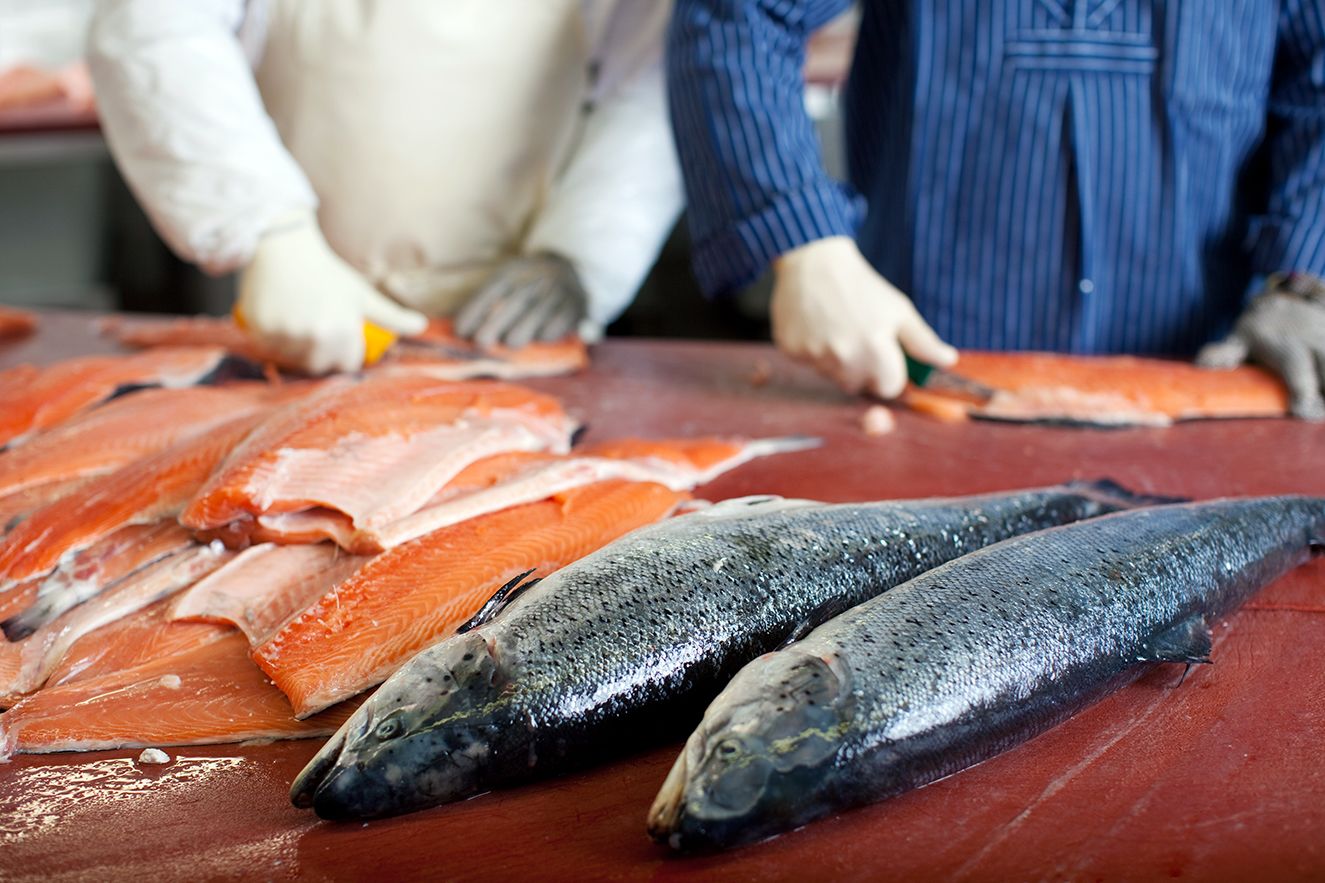
Natural disaster assistance programs for primary producers
Two oyster industry disaster assistance and support sessions facilitated by Oceanwatch Australia were held on the NSW south coast on 27 and 28 February 2020. A focus of the meeting was to highlight the various resources available to producers.
The Rural Assistance Authority (RAA) administers financial assistance programs for those impacted by natural disasters and can help shellfish aquaculture operators, as well as other primary producers, with grant applications. Rural Financial Counsellors provide free and impartial rural financial counselling to eligible primary producers, including aquaculture farmers and small rural businesses. This service can assist in your disaster initiative applications. Your nearest NSW Service Customer Care Centre can also assist with your disaster initiative applications. The conditions and requirements associated with these grants and loans may change so it is important to regularly check the website or contact the RAA by phone on 1800 678 593.
For primary producers, including shellfish aquaculture operators, further information on assistance packages are available on the NSW DPI website. A key component of the disaster recovery process is to ensure that damage from floods, fires and storms are reported to highlight their impacts. The primary industries natural disaster damage survey is a simple online survey that farmers can use to record damage to primary production and animals from natural disasters.
Help Us to Help You
The primary industries natural disaster damage survey is a simple online survey that farmers can use to record damage to primary production and animals from natural disasters such as floods, fires and storms. This will ensure we understand the severity and regional distribution of the damage and can target resources and assistance in the appropriate areas. To report damage, submit a survey on your phone or computer. It’s free and takes just a few minutes to complete. For further information and to fill out the survey see, https://www.dpi.nsw.gov.au/climate-and-emergencies/emergency/community/primary-industries-natural-disaster-damage-survey
DAIRY
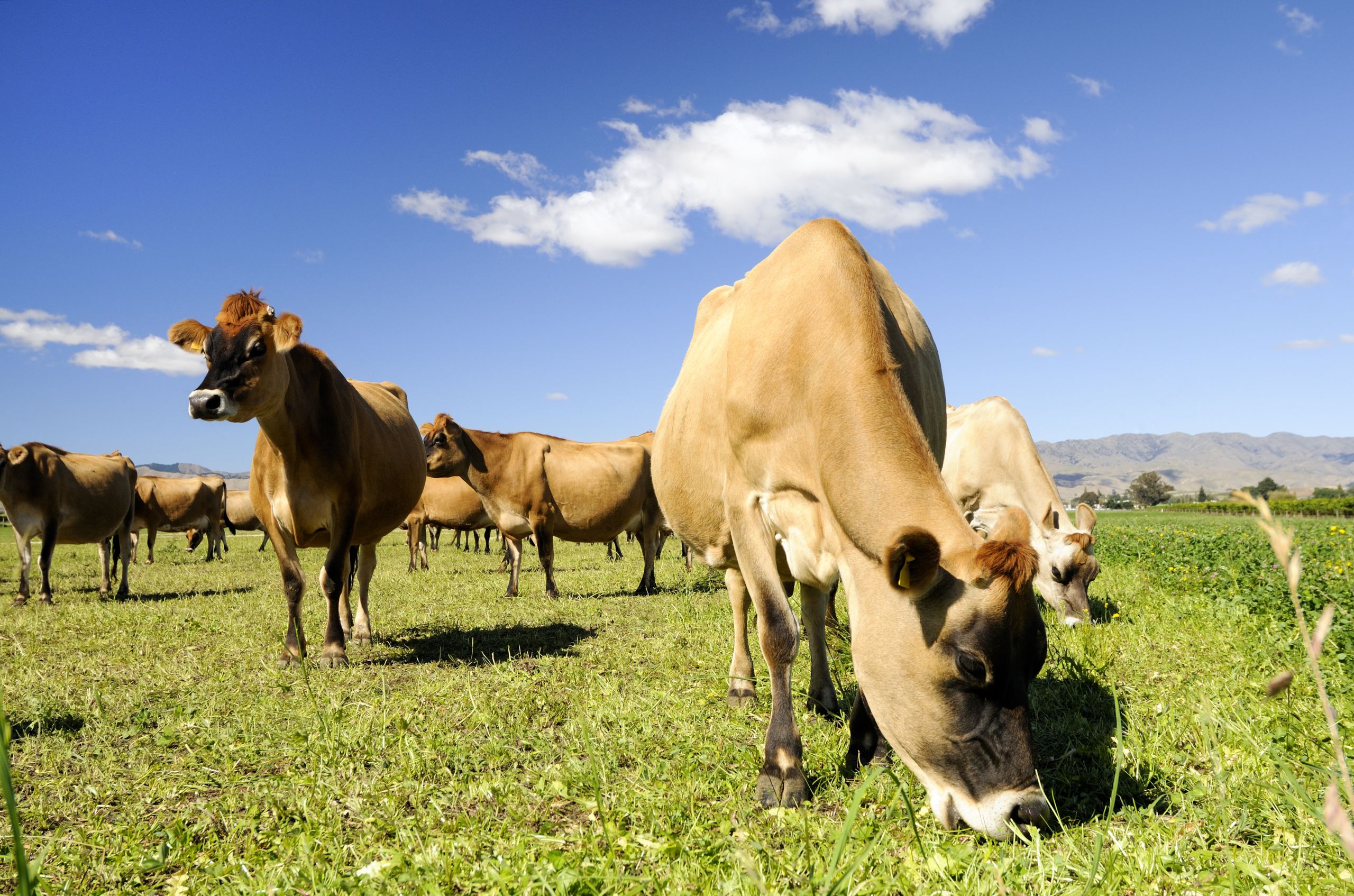
Inspections and audits
From January 2020 to March 2020, the Food Authority conducted 19 inspections and 98 audits of licensed dairy businesses. This industry sector has maintained a high compliance rate for an extended period due to industry commitment to food safety controls.
The below table shows yearly comparable data for compliance and audit activity in the dairy sector between the same reporting periods in 2019 and 2020.
| Reporting period | Jan-Mar 2019 | Jan-Mar 2020 |
|---|---|---|
| Total audits | 187 | 98 |
| Total inspections | 14 | 19 |
| Compliance rate | 98% | 97% |
EGGS
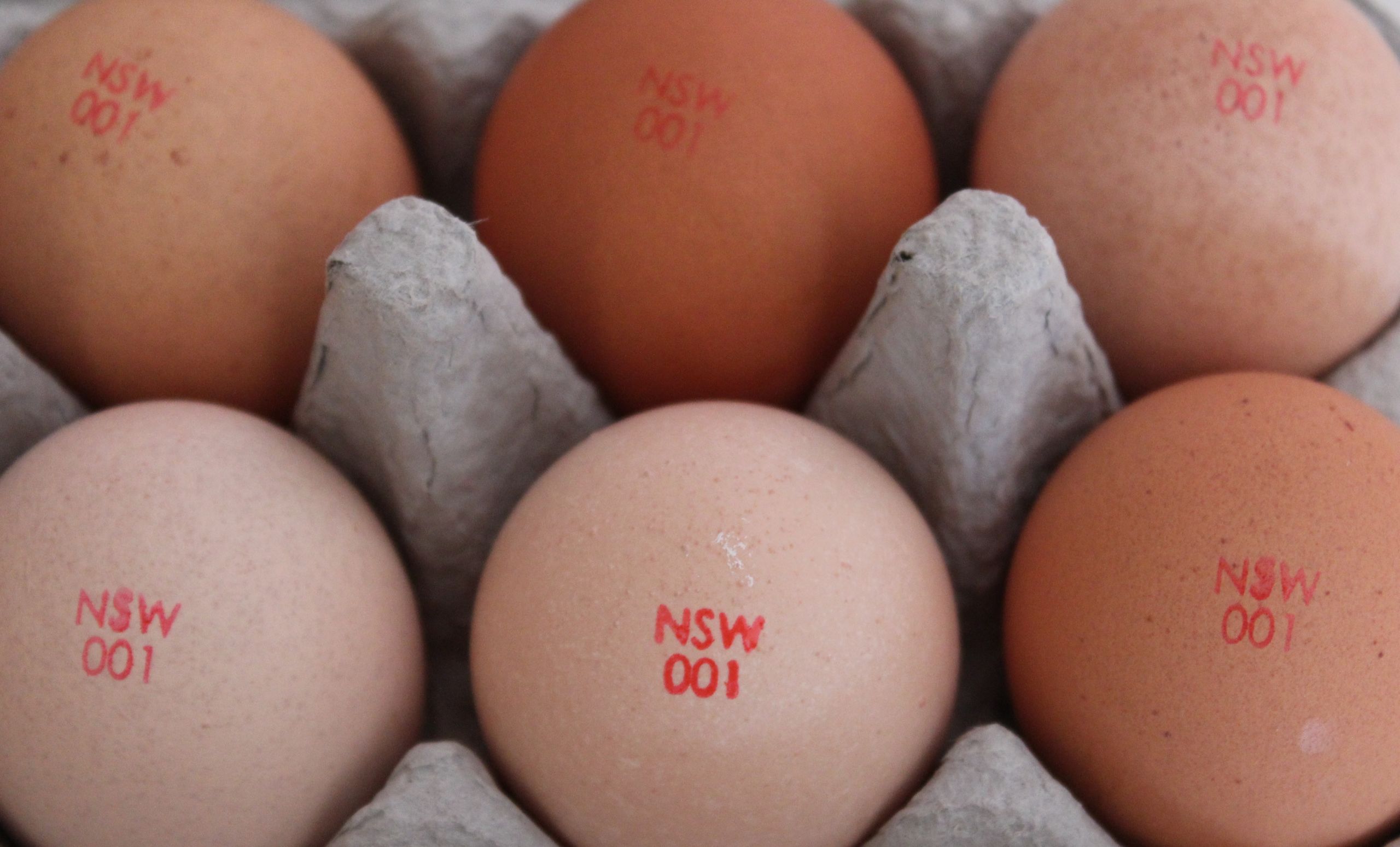
Inspections and audits
From January 2020 to March 2020, the Food Authority conducted 114 inspections and 16 audits of licensed egg businesses. This industry sector has recorded a compliance rate of 56% for the reporting period.
The below table shows yearly comparable data for compliance and audit activity in the egg sector between the same reporting periods in 2019 and 2020.
| Reporting period | Jan-Mar 2019 | Jan-Mar 2020 |
|---|---|---|
| Total audits | 36 | 16 |
| Total inspections | 38 | 114 |
| Acceptable audit rate | 83% | 56% |
Egg Industry Consultative Committee
The last EICC meeting was held in Sydney on 8 April 2020
The main topic for discussion at the latest Egg Industry Consultative Committee (EICC) held in Sydney on Wednesday 8 April 2020, was an update on mandatory Salmonella Enteritidis testing on licenced layer/farm facilities and general Salmonella in NSW. Privacy laws and disclosure of information to egg farmers were also discussed . To view agenda items from the meeting, click here.
The previous EICC meeting was held in Sydney on 7 August 2019. View a full summary of meeting outcomes.
The Egg Industry Consultative Committee is attended by representatives from Australian Eggs, NSW Farmers’ Association, Free range egg producers, Australian Eggs, Large egg processors, Large egg producers and NSW Department of Primary Industries.
The next meeting of the EICC will be held on Wednesday 12 August 2020.
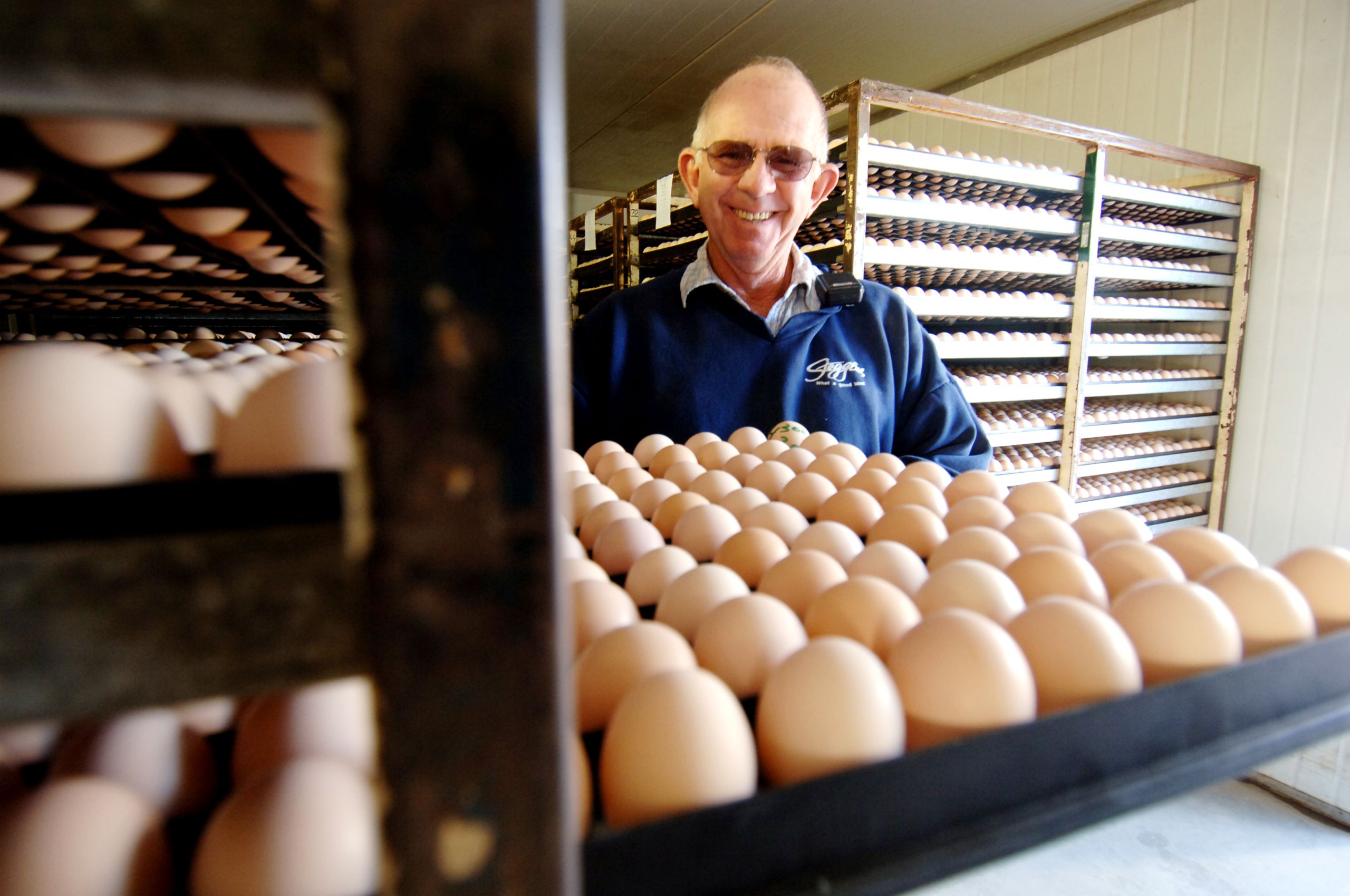
PLANTS

Inspections and audits
From January 2020 to March 2020, the Food Authority conducted 7 inspections and 23 audits of licensed plant product businesses. This industry sector has recorded a compliance rate of 97%.
The below table shows yearly comparable data for compliance and audit activity in the plant sector between the same reporting periods in 2019 and 2020.
| Reporting period | Jan-Mar 2019 | Jan-Mar 2020 |
|---|---|---|
| Total audits | 33 | 23 |
| Total inspections | 15 | 7 |
| Compliance rate | 94% | 97% |
Safeguarding our industry: Pre-harvest and harvest season review of NSW rockmelon production 2018-19
An increase in consumer confidence, following a 2018 listeriosis outbreak in rockmelons in Australia, reflects the ongoing commitment of our rockmelon industry to support best practice biosecurity and assist with market recovery. Improved practices and good food safety knowledge among rockmelon producers in NSW is well established, with proper management resulting in the production of a safe product for consumers.
In February 2018, a Horticulture Innovation Australia Limited project, delivered by NSW DPI Agriculture, was established to provide individual training and a tailored food safety program for all rockmelon growers nationally.
The NSW Department of Primary Industries (DPI) conducted a training workshop and review of pre-harvest preparation (including food safety programs) for growers in the Riverina area from November – December 2018. The training was based on content that was later published in ‘Melon food safety: A best practice guide for rockmelons and specialty melons’
This was followed up by a review of practices and post-harvest sampling of melons from January – April 2019, to validate the improved practices and increased food safety knowledge of rockmelon growers in NSW.
The findings were very positive, with no Listeria monocytogenes or Salmonella detected in over 500 tests of pre and post-harvest rockmelons.
For more information about the approach, findings and outcomes of this review, visit Pre-harvest and harvest season review of NSW rockmelon production 2018-19
VULNERABLE PERSONS

Inspections and audits
From January 2020 to March 2020, the Food Authority conducted 21 inspections and 251 audits of licensed hospitals and aged care businesses. This industry sector has maintained a high compliance rate with 99% of businesses recording an acceptable compliance result due to the correct implementation of food safety controls and ensuring staff have the necessary skills and knowledge.
The below table shows yearly comparable data for compliance and audit activity in the vulnerable persons sector between the same reporting periods in 2019 and 2020.
| Reporting period | Jan-Mar 2019 | Jan-Mar 2020 |
|---|---|---|
| Total audits | 329 | 251 |
| Total inspections | 34 | 21 |
| Compliance rate | 98% | 99% |
PROCESSES
FSANZ call for submissions
Food Standards Australia New Zealand (FSANZ) has recently released a call for written submissions on the draft variation to the Code arising from the following applications:
- A1192 – Food derived from herbicide-tolerant corn line MON87429
To seek approval for food derived from herbicide-tolerant corn line MON87429, genetically modified to provide resistance to dicamba, glufosinate, 2,4-D and the aryloxyphenoxypropionate group of herbicides (‘FOPs’). MON87429 is also genetically modified to provide tissue-specific resistance to glyphosate to facilitate the production of hybrid seeds.
Written submissions are due by 6pm (Canberra time) 21 May 2020. Read more. - A1196 - Food derived from nematode-protected and herbicide-tolerant soybean GMB151
To seek approval for food derived from nematode-protected and herbicide-tolerant soybean line GMB151, genetically modified to provide resistance to nematodes and the HPPD group of herbicides.
Written submission are due by 6pm (Canberra time) 9 June 2020. Read more.
*reproduced with permission from Food Standards Australia New Zealand




